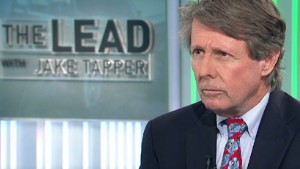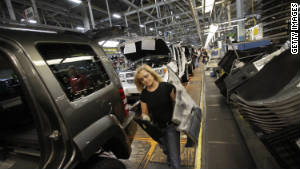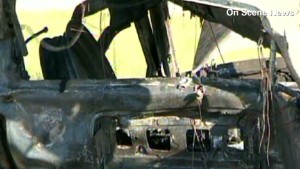- Back to Home »
- Chrysler profits over people's lives?
- Chrysler recalls Jeeps for software fix, but not models in which 51 people burned to death
- Ditlow: Company putting occupants of these models at risk of vehicle going up in flames
- Ditlow: Refusing to recall these 2.7 million Jeeps puts profits over safety
- He says Chrysler was bailed out by taxpayers for $10 billion; recall would cost $300 million
Editor's note: Clarence Ditlow is executive director of the Center for Auto Safety. His group petitioned the government to recall 1993 to 2004 Cherokee and 2002 to 2007 Liberty model Jeeps.
(CNN) -- Chrysler says it will recall 630,000 newer model Jeeps worldwide to fix a software glitch in its side airbag and seat belt mechanism and transmission fluid leak problems. No accidents or injuries happened because of these defects. But it refuses to recall 2.7 million older Jeep models with a fire hazard that the National Highway Traffic Safety Administration says caused more than 50 people to burn to death.
Chrysler's refusal to comply with the highway administration's request to recall 2.7 million 1993 to 2004 Cherokee and 2002 to 2007 Liberty models puts profits over safety, putting people who ride in them everyday at risk of their car being hit from behind and going up in flames.
These modern day Pintos for soccer moms have been involved in 37 rear-impact fatal fire crashes. Fifty-one people burned to death in those crashes, according to the National Highway Traffic Safety Administration. Compare that with the Ford Pinto: 26 people died in Pinto rear impact fires before it was recalled in 1978.

A recall would cost Chrysler no more $300 million to fix the problems and return the SUVs. Chrysler would not exist today but for a $10 billion bailout loan from the U.S. government. As a return for the bailout, Chrysler should spend a fraction of that to recall the Jeeps. The refusal to recall these rolling firebombs is an insult to American tax payers and Chrysler's Jeep customers.
The Grand Cherokee is 21 times more likely to be involved in a fatal rear impact crash in which fire is the cause of death than its biggest competitor, the Ford Explorer. The Jeep crashes in which people died in fires were readily survivable crashes. A rear impact crash at 70 mph in a vehicle similar in size to these Jeeps is no more severe than that of a front barrier crash at 35 mph, performed in the traffic administration's 5-Star Safety Ratings. Large seat backs spread the force of the crash better than small airbags, making 80 mph rear impacts survivable.
 Watchdog: Jeep defect worse than Pinto
Watchdog: Jeep defect worse than Pinto  Will government rebuff hurt Chrysler?
Will government rebuff hurt Chrysler?  Jeep manufacturer refuses safety recall
Jeep manufacturer refuses safety recall But a car crashing into the rear of these Jeeps can rupture their fuel tanks at speeds less than the 50 mph rear-impact standard. The Center for Auto Safety conducted a 40 mph rear impact crash test of a 1996 Grand Cherokee in which the Jeep's tank ruptured and spilled all the fuel. The 50 mph standard has 35% more energy than the Center's 40 mph test.
The Grand Cherokee and Liberty fuel tanks hang lower than the rear bumper, so they are particularly vulnerable to low-speed hits from vehicles that are lower to the ground. Many low-profile cars have sloping front ends that can directly hit the tank. Even 10 mph rear impacts crush the not-so-protective brush guard.
In 1978, Chrysler engineers cited the safety benefits of placing the fuel tank in front of the rear axle and noted that placing the fuel tank behind the rear axle in SUVs may require a shield because of bumper mismatch.
Chrysler moved the fuel tank in front of the rear axle in the 2005 Grand Cherokee and in the 2008 Liberty. There has not been a single fire death in a rear impact of the newer Jeeps with the more protected fuel tank location in all the years since.
The devastating effect of the fire defects in these Jeep models is that children riding in the back of Jeeps have been killed and injured. Chrysler sold these Jeeps as family vehicles. Parents put their kids in child seats in the back because that's safer. Tragically, children have been trapped in the seats and suffered horrible burns and deaths because they could be pulled out in time.
Fiat CEO John Elkann -- Chrysler is a subsidiary of Fiat -- and Chrysler CEO Sergio Marchionne are good people with families who should respond to the tragic deaths of their customers and could order a recall today. They owe it to the American public.
Follow us on Twitter @CNNOpinion.
Join us on Facebook/CNNOpinion.
The opinions expressed in this commentary are solely those of Clarence Ditlow.







